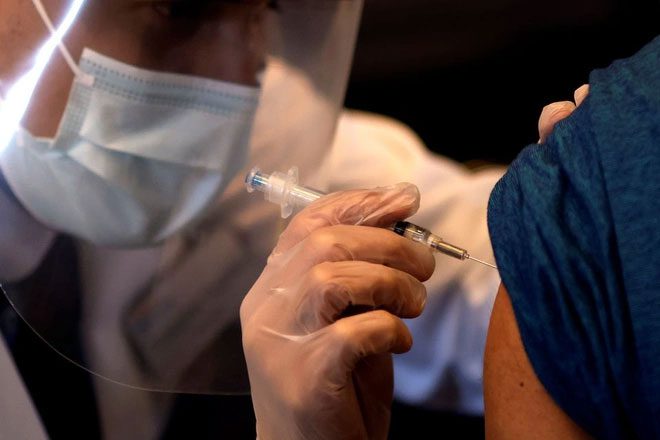A study published in The Lancet indicates that fully vaccinated individuals can still transmit the virus to other family members just like unvaccinated individuals.
Researchers from the Royal College of London, the UK Health Security Agency (HSA), and several other organizations reported that there is little to no difference in the transmission capability to family members between vaccinated and unvaccinated patients, according to a report by the Guardian on October 28.
Moreover, even those who are fully vaccinated are at a relatively high risk of infection. The study found that vaccinated individuals exposed to infected family members have a 25% risk of testing positive, while the risk for unvaccinated contacts is 38%.
The research team noted that the results do not reflect the actual level of infection.

Healthcare workers administering the Johnson & Johnson vaccine in the US in April. (Photo: Reuters).
To conduct this study, the authors analyzed data from 204 family members who were in contact with 138 patients infected with the Delta variant. Among them, 53 individuals subsequently contracted Covid-19 (31 vaccinated, 15 unvaccinated).
“This explains why cases of ‘breakthrough infections’ (those vaccinated but still contracting the virus) can transmit the virus to contacts just like unvaccinated cases,” said Ajit Lalvani, a member of the Royal College of London and co-author of the study.
According to the research team, the maximum transmissibility of the virus in infected individuals is the same, regardless of vaccination status. However, this level decreases more rapidly in vaccinated individuals.
Lalvani emphasized that vaccination, combined with booster doses, plays a crucial role in preventing Covid-19, as unvaccinated individuals cannot solely rely on the immunity of vaccinated individuals for protection against the virus.
Lalvani asserted that when infected, vaccinated individuals mostly experience mild symptoms and generally avoid severe cases and death.


















































